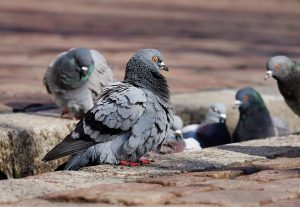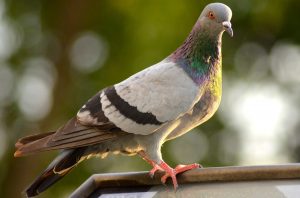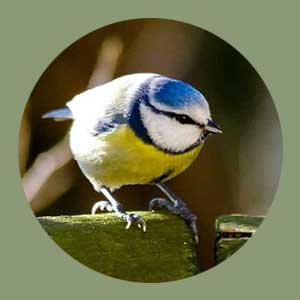If you have ever been to a park or town with young children in tow, you will know they make a beeline for any group of pigeons. They usually delight in making noise and laughing as they flee, except for the tough one, there is always a Rambo that fears nothing and no-one!
My initial instinct has always been to call the child away, telling them the birds are yukky and carry disease. Have I been doing them an injustice for all of these years?
Table of Contents
Are pigeons dirty and should we steer clear of them?
It seems there’s some basis to our assumptions. Pigeons might be classed as dirty as they do indeed carry disease. However, humans and every other living creature also carry disease, even domestic pets such as cats and dogs, and we don’t call them dirty and disease-ridden, do we?
Pigeons carry zoonotic diseases. This means any bacteria that can be passed from human to non-human, and back again. Thousands of other species carry zoonotic disease and pose no significant health risk to humans.

What the professionals say
David Taylor BVMS FRCVS FZS had this to say.
“ In 50 years of professional work as a veterinary surgeon I haven’t seen a single case of zoonosis in a human-related to pigeons. I have seen examples of human disease-related to contact with cats, dogs, cattle, monkeys, sheep, camels, budgies, parrots, cockatoos, aquarium fish, and even dolphins, on many occasions”
This is confirmed by the UK’s Chief Veterinary Officer who stated that there was no risk to human health when asked in the House of Commons, about the 7000+ feral pigeons that congregate daily in Trafalgar Square.
In exceptionally rare cases, people have been known to get ill with mild flu-like symptoms, after coming into contact with the fungus from pigeon droppings. It can be passed in contaminated water droplets or soil. Expert Professor Hugh Pennington maintains this is incredibly rare in the UK and good hand washing hygiene should prevent transmission.
People with compromised immune systems should avoid contact with all bird droppings.

Why Have Pigeons got a Bad Reputation
The Mayor of London launched a bid to prevent feeding the feral pigeons in Trafalgar Square as he felt so strongly about their nuisance value.
Although they pose no major risk to public health, the mess they create and the havoc they wreak makes feral pigeons public enemy number one.
Their bad reputation might be exaggerated, but the sheer amount of pigeons that flock together can be overwhelming. The weight of the birds and their droppings can damage property.
Worst of all, pigeons in towns, gardens, and parks, can bully all of the songbirds that we love, resulting in them looking for other places to feed and nest.
Are Pigeons Good for Anything
If you have ever watched a flock of pigeons, you will have surely noticed that they are not particularly fussy about what they eat. Chips, crisps, and the remnants of burger boxes in the street are a feast for a feral pigeon. They are unpaid street cleaners.
If only chewing gum and cigarette butts were edible, there’d be virtually no need for road sweepers!
Final thoughts…
Are pigeons dirty? No more so than any other wild animal, but the fact that they are so prevalent in almost all parts of the country makes us more aware of them.
Avoiding their droppings, or cleaning it up as quickly as possible, followed by a thorough hand wash, is enough to keep us safe.
If the domestic pigeons are happy to fly around with the feral pigeons and not come into contact with disease, then surely, we needn’t worry too much either.
